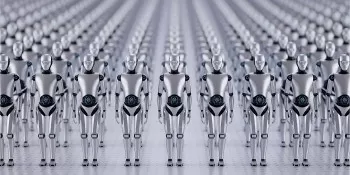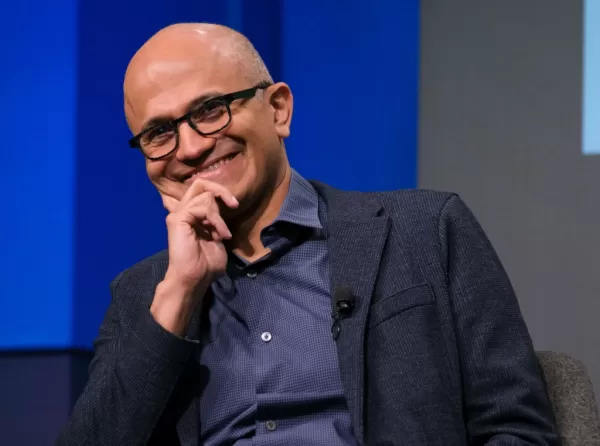MCP: How Open Standards Are Reshaping AI Innovation

Larger models aren't fueling the next AI breakthrough. The true game-changer is subtle: standardization.
Introduced by Anthropic in November 2024, the Model Context Protocol (MCP) creates a unified framework for AI applications to interact with external tools beyond their training data. Similar to how HTTP and REST streamlined web-service connections, MCP standardizes AI-tool integrations.
You’ve likely seen countless explanations of MCP’s mechanics. But what’s often overlooked is its understated strength: MCP is a standard. Standards don’t just tidy up technology—they spark exponential growth. Early adopters gain momentum, while laggards risk obsolescence. This article explores why MCP is critical now, its challenges, and its transformative impact on the AI ecosystem.
How MCP Transforms Chaos into Cohesion
Consider Lily, a product manager at a cloud infrastructure firm. She navigates a maze of tools—Jira, Figma, GitHub, Slack, Gmail, and Confluence—while grappling with constant updates.
By 2024, Lily recognized large language models (LLMs) excelled at synthesizing data. She envisioned automating updates, drafting messages, and answering queries by feeding her team’s tools into a model. But each model required unique integrations, tying her to specific vendors. Adding Gong transcripts, for instance, meant crafting another custom connection, complicating future model switches.
Then Anthropic unveiled MCP: an open protocol standardizing context delivery to LLMs. It gained rapid support from OpenAI, AWS, Azure, Microsoft Copilot Studio, and soon Google. Official SDKs for Python, TypeScript, Java, C#, Rust, Kotlin, and Swift emerged, with community SDKs for Go and others following. Adoption surged.
Now, Lily channels everything through Claude, linked to her apps via a local MCP server. Status reports generate automatically. Leadership updates are a single prompt away. As new models arise, she can swap them seamlessly without losing integrations. When coding on the side, she uses Cursor with an OpenAI model and the same MCP server as Claude. Her IDE already grasps her product’s context. MCP made this effortless.
Why Standards Matter
Lily’s experience reveals a core truth: fragmented tools frustrate users. Vendor lock-in is universally disliked. Companies dread reworking integrations with every model change. Users crave the freedom to choose the best tools. MCP delivers that freedom.
Standards bring significant implications.
First, SaaS providers with weak public APIs risk irrelevance. MCP relies on robust APIs, and customers will demand compatibility for AI applications. With a standard in place, there’s no room for excuses.
Second, AI development is accelerating. Developers no longer need custom code for basic AI applications. MCP servers integrate seamlessly with clients like Claude Desktop, Cursor, and Windsurf, streamlining testing and deployment.
Third, switching costs are plummeting. Decoupled integrations let organizations shift from Claude to OpenAI to Gemini—or mix models—without rebuilding infrastructure. Emerging LLM providers can leverage MCP’s ecosystem, focusing on performance and cost efficiency.
Tackling MCP’s Challenges
Every standard introduces hurdles, and MCP is no different.
Trust is paramount: Numerous MCP registries have surfaced, hosting thousands of community-run servers. But using an untrusted server risks exposing sensitive data. SaaS companies should offer official servers, and developers should prioritize them.
Quality varies: APIs evolve, and poorly maintained MCP servers can lag behind. LLMs need reliable metadata to select tools effectively. Without an authoritative registry, official servers from trusted providers are essential.
Overloaded MCP servers raise costs and reduce efficiency: Bundling too many tools into one server increases token usage and overwhelms models with excessive options, leading to confusion. Focused, task-specific servers are key. Developers and providers should design with this in mind.
Authorization and identity issues persist: These challenges predate MCP and remain unresolved. Imagine Lily instructing Claude to “send Chris a quick status update.” Instead of emailing her boss, the LLM might message every Chris in her contacts to ensure delivery. Human oversight remains critical for high-stakes tasks.
The Future of MCP
MCP isn’t just a trend—it’s a foundational shift in AI infrastructure.
Like all successful standards, MCP drives a self-sustaining cycle: each new server, integration, and application amplifies its momentum.
New tools, platforms, and registries are emerging to streamline MCP server creation, testing, deployment, and discovery. As the ecosystem grows, AI applications will offer intuitive interfaces for new capabilities. Teams adopting MCP will deliver products faster with superior integrations. Companies providing public APIs and official MCP servers will lead the integration narrative. Latecomers will struggle to stay relevant.
Noah Schwartz is head of product for Postman.
Related article
 Current Trends and Challenges in UX Design: AI's Role Unveiled
The UX industry is rapidly transforming, offering both opportunities and obstacles. This guide delves into the current UX landscape, providing expert insights on navigating the job market, tackling in
Current Trends and Challenges in UX Design: AI's Role Unveiled
The UX industry is rapidly transforming, offering both opportunities and obstacles. This guide delves into the current UX landscape, providing expert insights on navigating the job market, tackling in
 Replit and Microsoft Forge Strategic Cloud Partnership
Replit unveiled a strategic alliance with Microsoft on Tuesday, poised to drive growth for both companies.Replit will now be accessible via Microsoft’s Azure Marketplace, enabling Microsoft enterprise
Replit and Microsoft Forge Strategic Cloud Partnership
Replit unveiled a strategic alliance with Microsoft on Tuesday, poised to drive growth for both companies.Replit will now be accessible via Microsoft’s Azure Marketplace, enabling Microsoft enterprise
 Heeseung's AI-Powered 'Wildflower' Cover: A New Era of Music Creation
The digital world is rapidly transforming, introducing groundbreaking ways to express creativity. AI-generated covers have emerged as a unique medium, enabling artists and fans to reimagine beloved tr
Comments (0)
0/200
Heeseung's AI-Powered 'Wildflower' Cover: A New Era of Music Creation
The digital world is rapidly transforming, introducing groundbreaking ways to express creativity. AI-generated covers have emerged as a unique medium, enabling artists and fans to reimagine beloved tr
Comments (0)
0/200

Larger models aren't fueling the next AI breakthrough. The true game-changer is subtle: standardization.
Introduced by Anthropic in November 2024, the Model Context Protocol (MCP) creates a unified framework for AI applications to interact with external tools beyond their training data. Similar to how HTTP and REST streamlined web-service connections, MCP standardizes AI-tool integrations.
You’ve likely seen countless explanations of MCP’s mechanics. But what’s often overlooked is its understated strength: MCP is a standard. Standards don’t just tidy up technology—they spark exponential growth. Early adopters gain momentum, while laggards risk obsolescence. This article explores why MCP is critical now, its challenges, and its transformative impact on the AI ecosystem.
How MCP Transforms Chaos into Cohesion
Consider Lily, a product manager at a cloud infrastructure firm. She navigates a maze of tools—Jira, Figma, GitHub, Slack, Gmail, and Confluence—while grappling with constant updates.
By 2024, Lily recognized large language models (LLMs) excelled at synthesizing data. She envisioned automating updates, drafting messages, and answering queries by feeding her team’s tools into a model. But each model required unique integrations, tying her to specific vendors. Adding Gong transcripts, for instance, meant crafting another custom connection, complicating future model switches.
Then Anthropic unveiled MCP: an open protocol standardizing context delivery to LLMs. It gained rapid support from OpenAI, AWS, Azure, Microsoft Copilot Studio, and soon Google. Official SDKs for Python, TypeScript, Java, C#, Rust, Kotlin, and Swift emerged, with community SDKs for Go and others following. Adoption surged.
Now, Lily channels everything through Claude, linked to her apps via a local MCP server. Status reports generate automatically. Leadership updates are a single prompt away. As new models arise, she can swap them seamlessly without losing integrations. When coding on the side, she uses Cursor with an OpenAI model and the same MCP server as Claude. Her IDE already grasps her product’s context. MCP made this effortless.
Why Standards Matter
Lily’s experience reveals a core truth: fragmented tools frustrate users. Vendor lock-in is universally disliked. Companies dread reworking integrations with every model change. Users crave the freedom to choose the best tools. MCP delivers that freedom.
Standards bring significant implications.
First, SaaS providers with weak public APIs risk irrelevance. MCP relies on robust APIs, and customers will demand compatibility for AI applications. With a standard in place, there’s no room for excuses.
Second, AI development is accelerating. Developers no longer need custom code for basic AI applications. MCP servers integrate seamlessly with clients like Claude Desktop, Cursor, and Windsurf, streamlining testing and deployment.
Third, switching costs are plummeting. Decoupled integrations let organizations shift from Claude to OpenAI to Gemini—or mix models—without rebuilding infrastructure. Emerging LLM providers can leverage MCP’s ecosystem, focusing on performance and cost efficiency.
Tackling MCP’s Challenges
Every standard introduces hurdles, and MCP is no different.
Trust is paramount: Numerous MCP registries have surfaced, hosting thousands of community-run servers. But using an untrusted server risks exposing sensitive data. SaaS companies should offer official servers, and developers should prioritize them.
Quality varies: APIs evolve, and poorly maintained MCP servers can lag behind. LLMs need reliable metadata to select tools effectively. Without an authoritative registry, official servers from trusted providers are essential.
Overloaded MCP servers raise costs and reduce efficiency: Bundling too many tools into one server increases token usage and overwhelms models with excessive options, leading to confusion. Focused, task-specific servers are key. Developers and providers should design with this in mind.
Authorization and identity issues persist: These challenges predate MCP and remain unresolved. Imagine Lily instructing Claude to “send Chris a quick status update.” Instead of emailing her boss, the LLM might message every Chris in her contacts to ensure delivery. Human oversight remains critical for high-stakes tasks.
The Future of MCP
MCP isn’t just a trend—it’s a foundational shift in AI infrastructure.
Like all successful standards, MCP drives a self-sustaining cycle: each new server, integration, and application amplifies its momentum.
New tools, platforms, and registries are emerging to streamline MCP server creation, testing, deployment, and discovery. As the ecosystem grows, AI applications will offer intuitive interfaces for new capabilities. Teams adopting MCP will deliver products faster with superior integrations. Companies providing public APIs and official MCP servers will lead the integration narrative. Latecomers will struggle to stay relevant.
Noah Schwartz is head of product for Postman.
 Current Trends and Challenges in UX Design: AI's Role Unveiled
The UX industry is rapidly transforming, offering both opportunities and obstacles. This guide delves into the current UX landscape, providing expert insights on navigating the job market, tackling in
Current Trends and Challenges in UX Design: AI's Role Unveiled
The UX industry is rapidly transforming, offering both opportunities and obstacles. This guide delves into the current UX landscape, providing expert insights on navigating the job market, tackling in
 Replit and Microsoft Forge Strategic Cloud Partnership
Replit unveiled a strategic alliance with Microsoft on Tuesday, poised to drive growth for both companies.Replit will now be accessible via Microsoft’s Azure Marketplace, enabling Microsoft enterprise
Replit and Microsoft Forge Strategic Cloud Partnership
Replit unveiled a strategic alliance with Microsoft on Tuesday, poised to drive growth for both companies.Replit will now be accessible via Microsoft’s Azure Marketplace, enabling Microsoft enterprise
 Heeseung's AI-Powered 'Wildflower' Cover: A New Era of Music Creation
The digital world is rapidly transforming, introducing groundbreaking ways to express creativity. AI-generated covers have emerged as a unique medium, enabling artists and fans to reimagine beloved tr
Heeseung's AI-Powered 'Wildflower' Cover: A New Era of Music Creation
The digital world is rapidly transforming, introducing groundbreaking ways to express creativity. AI-generated covers have emerged as a unique medium, enabling artists and fans to reimagine beloved tr





























